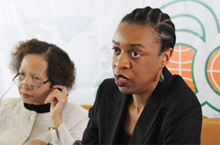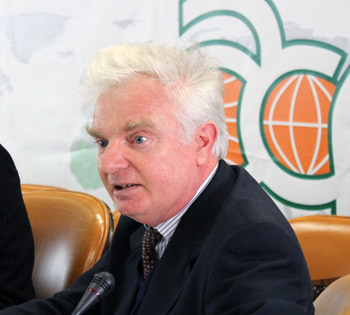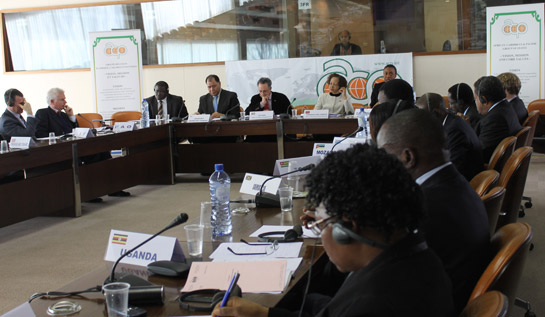ACP examines South-South and Triangular cooperation for poverty eradication
 Brussels, 27 March 2014/ ACP: Experts and delegates discussed the potential role of the ACP Group in advancing an innovative approach to development assistance that has seen growing interest around the globe.
Brussels, 27 March 2014/ ACP: Experts and delegates discussed the potential role of the ACP Group in advancing an innovative approach to development assistance that has seen growing interest around the globe.
The Ambassador of Trinidad and Tobago to the EU, and Chair of the ACP Sub-Committee on Development Finance Cooperation H.E Mrs Margaret Allison King-Rousseau opened the 2nd ACP Symposium on South-South and Triangular Cooperation in Brussels on Tuesday, underlining the need to “develop strategic partnerships to ensure that development cooperation has a lasting impact”.”
Cited as a way to promote the added value of the ACP Group, South-South Cooperation (SSC) refers to the exchange resources, knowledge, technology and experience between or amongst developing countries, with the aim of fighting poverty and promoting sustainable development.
In Triangular Cooperation (TrC), a third party – usually a developed country – also enters the partnership by sharing its own resources and expertise.
Ambassador King-Rousseau added that SSC and TrC are emerging models that compliment the traditional “North-South” partnership, while also exploring the role of the emerging economies in development cooperation.
ACP as global hub 
Consultant Dr Carine Nsoudou presented a working paper on the practical possibilities for the ACP Group to engage in SSC and TrC. She was commissioned by the ACP Secretariat to do a mapping exercise on current successful examples of SSC and TrC in action in ACP regions.
Dr Nsoudou said that while there are many parallel activities in SSC and TrC around the world, there is no overarching framework, leading to a lack of coordination and impact. She proposed that the ACP Group, given its long and rich experience in the area of development cooperation, build its capacity to be a “global hub” for SSC and TrC, acting as a knowledge repository and a “facilitator” providing strategic advice on the issue.
However, challenges of financial and human resources, installing an efficient framework, converging multiple and parallel initiatives, and identifying the right areas of intervention, need to be addressed.
During the session, Ambassadors and delegates from Benin, Mozambique, South Africa, Trinidad and Tobago and Fiji shared examples of SSC and TrC activities in their own countries. Cases included a comprehensive scheme for sustainable tourism, production and energy that links Benin, Bhutan, Costa Rica, and the Netherlands, as well as a project targeting agricultural growth in Mozambique, using successful experience and expertise from Brazil and support from Japan.
Representatives of the Food and Agriculture Organisation, European Commission and German Government also made presentations.
Senior Officer Stefano Gavotti shared the FAO experience in SSC and TrC initiatives, including since 2012, the deployment of 1800 experts in 48 countries and signing of 253 tripartite agreements. He stressed the importance of the principles of equal partnership, ownership (demand-driven) and flexible modalities.
Mr Gavotti supported an FAO and ACP strategic partnership in advancing SSC and TrC policy dialogue.

(Photos from top: Ambassador Margaret King-Rousseau from Trinidad and Tobago who acts as the Chair of the ACP Sub-Committee on Development Finance Cooperation and consultant Dr Carine Nsoudou; FAO Senior Officer/ South South Cooperation Team Mr Stefano Gavotti; Participants at the 2nd ACP Symposium on South South and Triangular Cooperation )
– ACP Press
